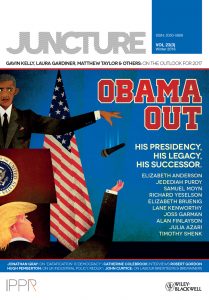Speaking Globe-ish
I recently took a break from my PhD to work as an ESL teacher in a summer school in Northern England. As well as making a welcome change from my studies to a very different working and living environment for a month, it also made me reflect on language and the linguistic hegemony which English continues to enjoy around the world. On the one hand, I’m slightly uncomfortable with the way which English has become the dominant world language, allowing...







1099-1328/asset/dsa_logo.jpg?v=1&s=e4815e0ca3064f294ac2e8e6d95918f84e0888dd)
